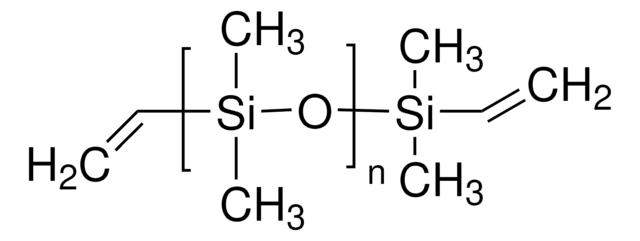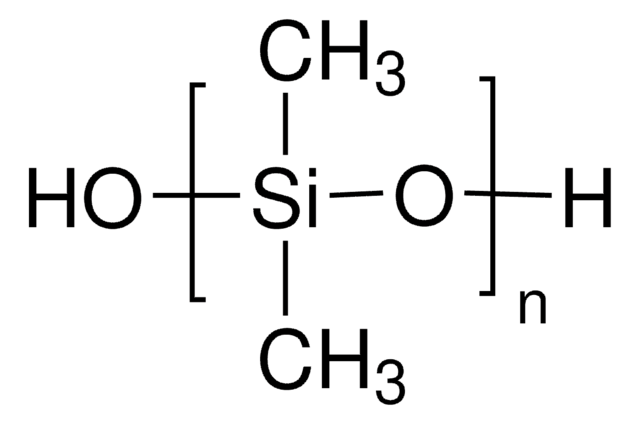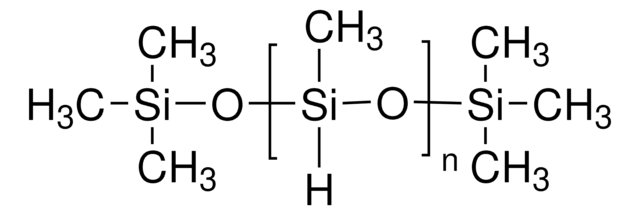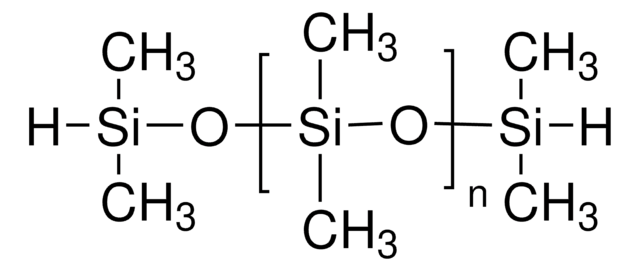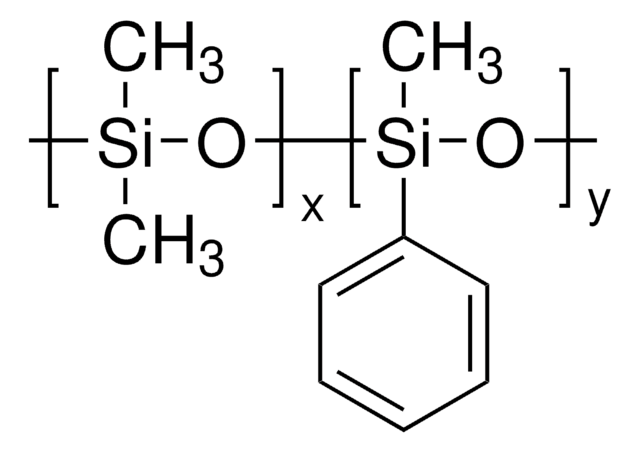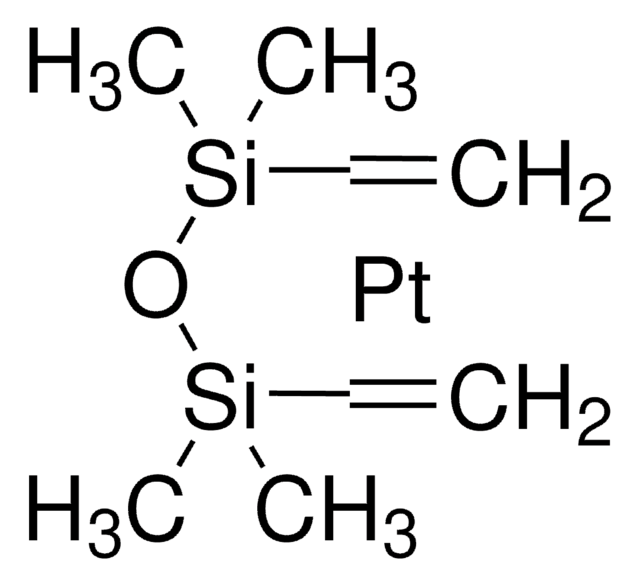482374
Poly(dimethylsiloxane-co-methylhydrosiloxane), trimethylsilyl terminated
average Mn ~13,000, methylhydrosiloxane 3-4 mol %
About This Item
Recommended Products
mol wt
average Mn ~13,000
Quality Level
composition
methylhydrosiloxane, 3-4 mol %
refractive index
n20/D 1.405
viscosity
~260 cSt(lit.)
bp
>93 °C (lit.)
density
0.97 g/mL at 25 °C
Looking for similar products? Visit Product Comparison Guide
Related Categories
Signal Word
Warning
Hazard Statements
Precautionary Statements
Hazard Classifications
Eye Irrit. 2 - Skin Irrit. 2 - STOT SE 3
Target Organs
Respiratory system
Storage Class Code
10 - Combustible liquids
WGK
WGK 3
Flash Point(F)
150.1 °F - closed cup
Flash Point(C)
65.6 °C - closed cup
Personal Protective Equipment
Choose from one of the most recent versions:
Already Own This Product?
Find documentation for the products that you have recently purchased in the Document Library.
Customers Also Viewed
Articles
Dr. Tan and researcher introduce recent trends in Self-healing Soft Electronic Materials and Devices. The emergence of smart, functional SHPs will be highly beneficial to the advancement of the next-generation self-healing soft electronic devices. Autonomously self-healing devices could help to minimize the need for repair or replacement of electronics and machines, potentially reducing the cost of materials and reducing electronic waste.
Self-assembled monolayers (SAMs) have attracted enormous interest for a wide variety of applications in micro- and nano-technology. In this article, we compare the benefits of three different classes of SAM systems (alkylthiolates on gold.
Related Content
We offer PDMS surface modification kit which allows for durable hydrophilization of various polydimethylsiloxane (PDMS) surfaces.
Global Trade Item Number
| SKU | GTIN |
|---|---|
| 482374-150ML | 4061837852275 |
| 482374-25ML | 4061837852282 |
Our team of scientists has experience in all areas of research including Life Science, Material Science, Chemical Synthesis, Chromatography, Analytical and many others.
Contact Technical Service